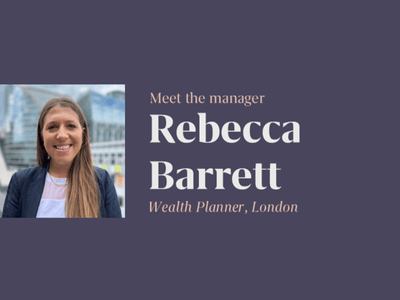A fund manager is often judged on his grey hairs, his experience of living market cycles and comparing moments in time to a bygone era, but some of the greatest advice I ever received has been to never stop learning and to be an unashamed copycat of good ideas. These two in conjunction have done much to shape my investment philosophy and the strategy employed in the Coleman Street Investment funds.
As an example, I recently listened to a lecture that was titled ‘tales from a jazz musician and management educator’ where the speaker drew parallels throughout between jazz and business. In it, he used examples of things like ‘you can’t work in competition if you’re in the same orchestra’ and discussed how important it was to know the roles and boundaries of yourself and others in the band. But what really stood out to me was this idea of being either a ‘reader’ or a ‘jazzer’.
A reader is someone that can play a score note perfect – they can take a script, however complex, and they can repeat and replay that script. A jazzer is someone that has a deep understanding of their topic but can improvise and be creative but with discipline based upon fundamental restrictions and knowledge.
It struck me that in fund management we need to be jazzers - it is vitally important that we have a deep understanding and that we exercise discipline but it is also crucial that we allow ourselves enough freedom and creativity in order to take advantage of opportunities that others might not see.
This approach can be seen in the funds through our asset allocation – the benchmark allocation provides the foundation but we have the ability and the freedom to take a solo when the time is right. We talk about this as tilting around the benchmark.
Rugby fans of an age will recognise Jonny Wilkinson – a hero of mine and I will forever remember the drop goal going over in 2003. In another instance of learning from the experience of others, I listened to a podcast with him recently and he has clearly become much more mindful as the years have gone on. Jonny was a complete perfectionist and says he sought invincibility in everything he did. That meant always scoring the point, winning the game or lifting the trophy. But he now understands that that wasn’t sustainable and he thinks this mentality added emotional pressure and is in part to blame for why his career wasn’t as long and celebrated as it could have been.
Jonny now defines true invincibility as the ability to celebrate your successes to the same extent that you are curious about your disappointments. The emphasis here is about process and evaluation – so that’s exactly what we do. We care about the process that we go through on a day-to-day basis and then an honest evaluation of our work and our decisions some time after – in doing this we strive for invincibility, not by the dictionary but by Jonny’s definition.
We do this in many ways in the funds but one example is that one year on the analysts on the team will do a deep dive analysis of decisions made. The focus of this is on the process at decision time – whether the investment was a success or a disappointment, that review can provide insight in equal parts.
My third parallel gives me a chance to talk about cricket. I used to play a lot of cricket. I still do. I love to play it, I love to watch it and I’m a bit of a purist. And when watching test cricket my favourite phrase to hear is ‘that’s a good leave’. To the untrained eye, the batsman has done nothing – they have literally not even attempted to hit the ball – but have made an active decision to do nothing and that has taken great discipline. And we try to do this in the funds. We can spend hours, days and weeks of work analysing a business and it’s hard at that point to leave the business alone and to do nothing. But sometimes you have to and sometimes it’s a ‘good leave’.
The funds I manage are mostly invested in directed equities, our investment approach is to consider ourselves 100% owners of any business that we invest in but to only pay what we believe the be a fair price for the shares. In 2019, we did a lot of work into a specific stock in the leisure sector– we liked what we saw in the business but felt that the risk reward in the shares was inappropriate and so left the shares alone. 6 months later the global pandemic hit and we were able to buy what we felt was a structurally unaffected company at a more appealing valuation. The shares price has nearly trebled since that initial investment and we are excited for the future of the business. Our decision back in 2019 was a good leave.
And whilst I used to play a lot of cricket, I’ve never flown a plane. But one of the things that I know you have to do is that when learning, you have to stall a plane in mid-air and you have to retrieve a plane from a spin. Pilots are taught that they will make mistakes and that bad things will happen – they are taught that it is how you react that is important and that you need to practice that reaction. We think this mind-set should be similar in fund management - we do not choose to make mistakes, but we know that we will. It is how we react to them, it is what we learn from them and how we prepare for the next one that matters.
My final example is something that has been a very important part of my investment process since reading a book many years ago written by Atul Gawande who was employed by the WHO to find out why the surgical error rate in modern western countries was so high. The bottom line is that he found out that people were making simple mistakes like chopping off the wrong leg, or having the wrong blood type for the patient but that these errors could be dramatically reduced by the use of a simple and physical checklist. If it’s good enough for surgery, it’s good enough for fund management and the use of checklists throughout our process is absolutely vital. It doesn’t help us to make exceptional decisions but we hope that it does help us to avoid stupid ones.
An example of this is what I call my pre-flight checklist – before we take off on any investment, we ask ourselves some simple questions, we print them off and we tick a box. For example, within our direct equity exposure, we ask ourselves things like; Can this business grow at greater than GDP? Does this business operate at high or stable margins? Does this business turn it’s profits into cash? Can I buy the shares at a reasonable price?
Over the coming years, I am sure there will be many more people and disciplines to learn from. We aspire to learn as much as we can and to be unashamed copycats of good ideas.
James Godrich, fund manager of the CSI Funds.




